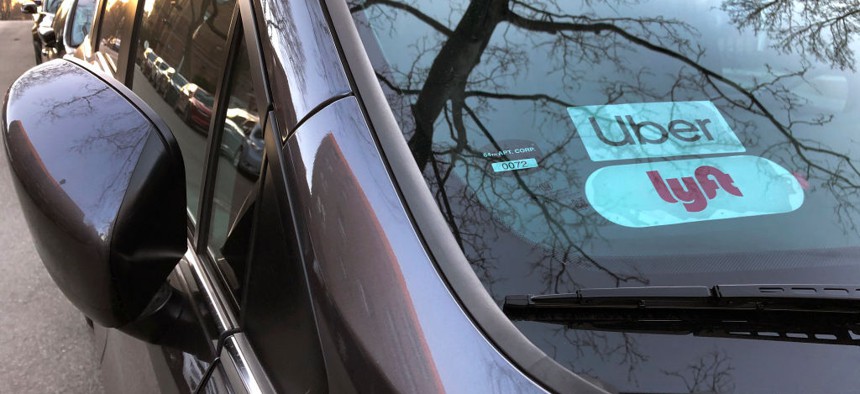How the Black Car Fund survived COVID-19 and is expanding benefits for drivers
The nonprofit organization wants legislation that added dental exams, cleanings and vision coverage renewed after it expires at the end of 2022.

Education Images / Contributor - Getty
The Black Car Fund Operators Injury Compensation Fund was signed into law by Gov. George Pataki in May 1999, creating workers compensation coverage for the independent drivers of black car companies. A 2.5% passenger-paid surcharge would pay for the coverage administered under the nonprofit known today as The Black Car Fund. The organization would go on to add health, wellness, and education-related benefits to more than 100,000 members, which today includes Lyft and Uber drivers.
A new 3% surcharge on ride-share customers has more recently allowed for additional driver benefits, including dental exams, cleanings and vision coverage announced last summer. NYN Media recently caught up with Ira Goldstein, the Black Car Fund’s executive director, to learn more about the fund, its expanded benefits, and how it helped drivers during the coronavirus pandemic.
This interview has been edited for length and clarity.
Please discuss how the Black Car Fund came about and how it benefits independent black car drivers.
The Black Car Fund is a not-for-profit that provides black car drivers who are independent contractors with workers compensation insurance. In a joint effort by the industry and Albany, [both] came up with a unique and, I believe, innovative model where a nominal surcharge [would be] added to each ride. That has provided [extra] revenue [for] drivers [who] would not have it otherwise as independent contractors.
Please discuss how the fund went beyond providing just workers comp.
Over the years, we've also been able to expand the benefits that we offer drivers. For example, we pay them to take certain classes, such as the New York City TLC (Taxi Limousine Commission) required enhanced defensive driving class, where drivers are given $300. This includes transportation network companies (TNC), Uber, and Lyft drivers. We also offer a wellness program, hands-only CPR, opportunities to learn additional safety tips about sharing the road with pedestrians and cyclists, and even health tips for drivers, which covers nutrition, stretching and other tips relevant for someone that may be seated for long periods of time. Drivers also learn how to respond to Amber Alerts. They receive $150 for taking that class. Outside of program offerings, drivers also get dental, vision, and telemedicine plans, as well as support for mental health and wellness.
Some of the newer benefits, including dental exams, cleanings and vision coverage, will end under legislation that expires at the end of this year. You’ve been lobbying to have a renewal of the benefits in place before the end of this Legislative session. What specifically are the benefits extensions you’d like to see?
We would like to see an extension for three years or more. Potentially, we would also like to take out the sunset provision permanently.
How did the Black Car survive during the slowdown in ridership during the pandemic?
We were concerned for the industry that was hurting, but as for the fund, we were not significantly affected. There was never any change in any of the drivers’ benefits or cutting back programs. Other than not being able to hold the classes that they were getting paid for when we couldn't have people congregating safely in a classroom. From a benefits perspective, it was a non-factor. Even though we had a drastic reduction in revenue, there was also a commensurate reduction in the number of claims we were receiving. From the Black Car Fund perspective, we got through it.
Early on, we distributed about 20,000 personal protective equipment (PPE) kits to the drivers, especially the ones doing meal deliveries or people that were shut in their homes. Later on during the Omicron surge, we purchased approximately 3,500 test kits and distributed them to drivers, primarily at John F. Kennedy and LaGuardia Airports, but we also sent shipments up to Buffalo and to other Uber and Lyft drivers outside ofNew York City as well. We’re not a typical insurance or workers compensation carrier. We're there to take care of the drivers and we take that mission seriously.
